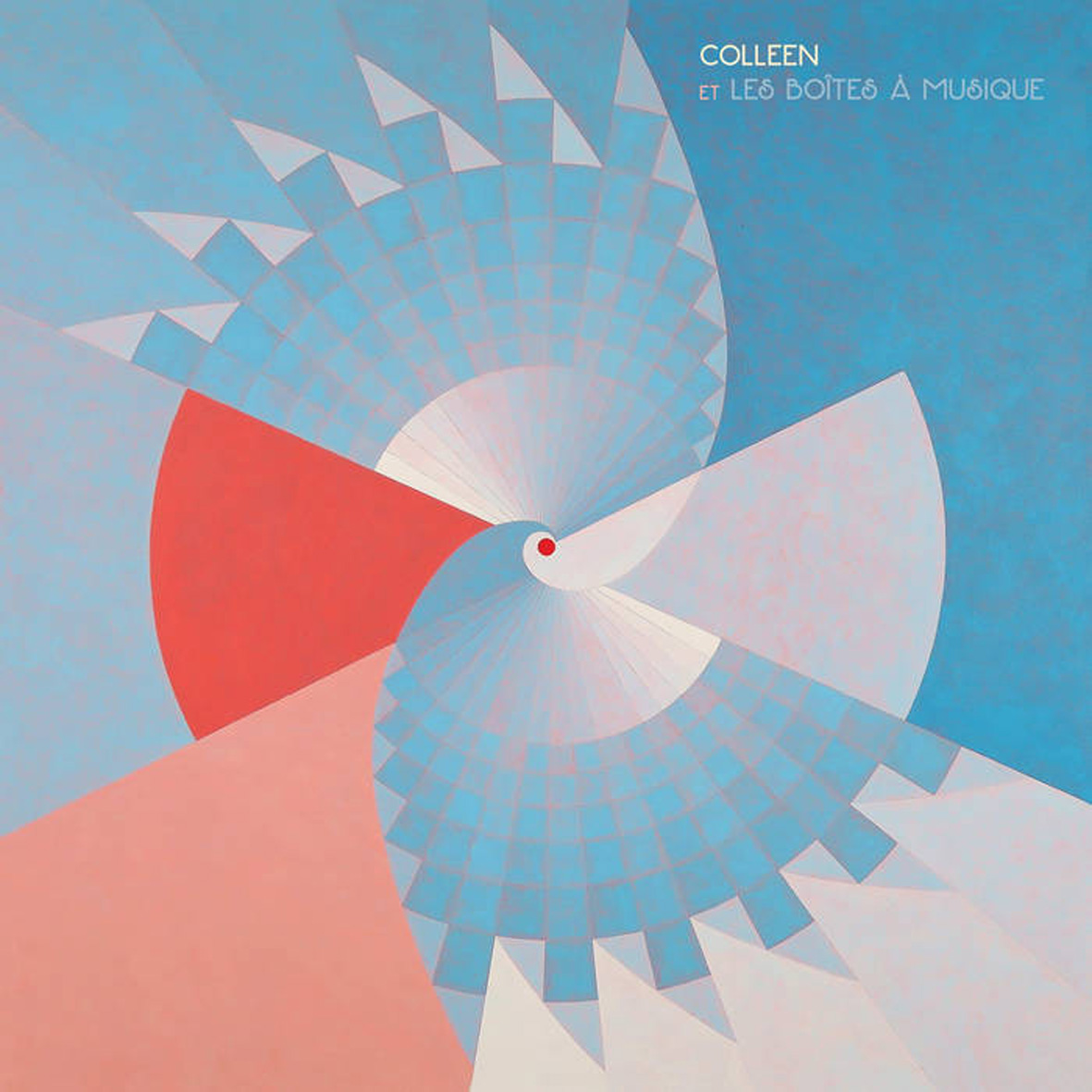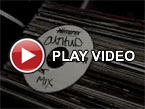Colleen, "Colleen Et Les Boîtes À Musique"

Recently reissued, this unusual EP/mini-album was originally composed as a continuous hour-long piece for the French radio program Atelier de Création Radiophonique. The adventurously narrow theme of the endeavor itself is the unusual part, as the entire program was created from sounds generated from antique music boxes. Given that extreme constraint, this material was never intended to be formally released as an album, but Leaf liked these alternately surreal and playful experiments enough to release it anyway (albeit in somewhat altered form). When it was first released back in 2006, this modest release felt somewhat slight and anticlimactic in the wake of Colleen's classic first two albums, yet I have gradually warmed to it quite a bit over the years. While I still think much of this release is strictly for devout fans, it would be a mistake to overlook it completely, as it features a couple of woefully underheard gems.
The original version of Boîtes À Musique that Cécile Schott composed was a longform collage in which the individual vignettes were bridged together by music box-themed movie samples.Consequently, the altered shape of this album was driven by necessity, as obtaining the rights for all of those film snippets would likely have been a logistical and financial nightmare.As a result, the album is comprised of fourteen discrete pieces of varying lengths that range from under a minute to almost seven minutes.Notably, one of the longest pieces, "I'll Read You a Story," is a reprise of one of the most sublimely gorgeous pieces from The Golden Morning Breaks.In fact, it is one of the most quietly stunning pieces that Schott has ever recorded, so it is a lock for one of the highlights here as well.I supposed its inclusion could be seen as cheating a bit, but Schott never intended for this album to be released and it made perfect sense for her to conclude her radio session with such a dazzling crescendo.In any case, I am always happy to hear it again.In fact, I suspect it was the primary inspiration for this deeper plunge into the world of music boxes.The marriage is certainly a good fit, as the delicate, wistful prettiness of music box melodies is not a far cry from the delicate, wistful beauty of Colleen's other work.
Notably, this is not Schott's first dip into her friend John Cavanagh’s collection of Victorian music boxes, as Golden Morning’'s "The Heart Harmonicon" originated there as well (albeit from a recording made by Cavanagh himself).Back then, music boxes played a small role in Colleen's aesthetic, but Boîtes À Musique makes Cavanagh's collection the sole focus…sort of.There are a few exceptions and "Story" is one of them for a couple of reasons.For one, its dreamily chiming central theme is fleshed out considerably by Schott's classical guitar accompaniment.Secondly, much of the bittersweet beauty of "Story" is due to her transformative production wizardry, as the piece is a languorous swirl of backwards melodies, rippling arpeggios, and flickering hallucinatory flourishes.Schott takes a similarly loose thematic approach with the album's other centerpiece, "Your Heart is So Loud," which stretches and blurs a fragile melody to leave a heavenly shivering wake of afterimages.Though much shorter, "The Sad Panther" is also quite beguiling, unfolding as a slow-motion cascade of hazy backwards melodies.Despite their superficial differences, both "Panther" and "Heart" ultimately achieve the same aesthetic end, feeling like a time-stretched and lovesick tableaux unfolding within a dream-like snow globe world.
If the rest of Boîtes À Musique had deepened and expanded that vein, it would have likely been Schott's third stellar album in a row, but the remaining pieces are a bit more varied, whimsical, and sketchlike.The better ones are quite charming though, particularly the stumbling and fitful rendition of "Happy Birthday" that comprises "Charles's Birthday Card."In a similar vein, "A Bear is Trapped" sounds like an obsessive child maniacally trying to play "Pop Goes the Weasel" on a rusty music box that sounds like it is hemorrhaging crucial parts as the crank is enthusiastically wound too quickly.Elsewhere, both "Under The Roof" and "Bicycle Bells" are awkwardly pretty, as tumbling melodies of ringing notes unfold at an erratic pace.There are also a couple of smaller themes that stake out their own small parts of the album: a pair of gamelan-themed pieces and a pair of componium pieces (appropriately titled "What is a Componium?").The latter are some of the more substantial works among the idiosyncratic mixed bag of remaining pieces, particularly "What Is a Componium?Pt. 2," which is an undulating tapestry of sweeping, overlapping, and crystalline arpeggios.There is also one particularly bizarre and aberrant piece near the end, the cheerily pixelated "Calypso in a Box," which sounds like it could be the mercilessly annoying theme of a video game geared towards small children.I am not sure if that one necessarily counts as a misstep, however, as its brief candy-colored lunacy is certainly an effective palette-cleanser after the lovely "Your Heart is So Loud."I doubt many tears would have been shed if it had been accidentally omitted from the reissue though.
Obviously, it would be wonderful if every piece on Boîtes À Musique sank deeper into the warmly enveloping dream-state conjured by pieces like "The Sad Panther," but it is still an interesting, unique, and divergent release in its existing form.Schott would have been crazy to pass up an opportunity to step outside her usual working method and dive into a roomful of delightful Victorian contraptions.In hindsight, most of my previous grievances with this EP stem from a simple misunderstanding: I wanted Schott to make my new favorite album and she wanted to see if she could turn a treasure trove of antiques into a compelling hour of radio.She won (understandably).The important thing is that Boîtes À Musique maintains the fundamental mystique and endearing anachronism of the Colleen aesthetic and that this fleeting departure resulted in a couple of gorgeous new pieces that would not have otherwise existed.It may be a minor release within Schott's frequently brilliant discography, yet it is a minor release that unexpectedly hits some impressive heights every now and then.If this album can be said to have a significant flaw, it is merely the unavoidable one: all of these pieces have been decontextualized from their intended role in a larger piece.As such, less substantial pieces that once filled a crucial place in a continuous flow are lamentably isolated and presented as individual works.Understandably, they wilt a bit under that kind of scrutiny, even if it is not their fault.Hopefully, the original broadcast will someday reappear through the magic of the internet and belatedly right that wrong, but until then "The Sad Panther" and "Your Heart is So Loud" make great consolation prizes.
 



